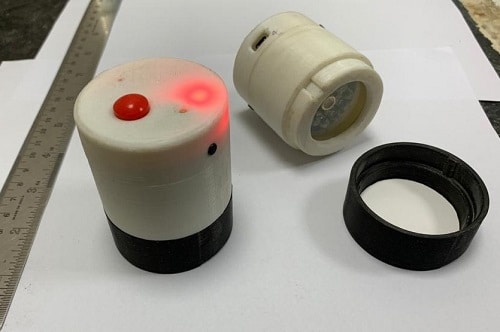Developed by IIT Kanpur, the first-of-its-kind device can test upto 1 lakh soil samples for essential macronutrients

Soil health monitoring is essential for growing good quality crops that are profitable for agriculture. Generally, it takes several days to completely assess soil health as it has to be sent to various labs for testing.
Based on the results, soil cards or reports are issued to farmers, which further takes time.
To bring down this wait time, a team of inventors at the Indian Institute of Technology, Kanpur has developed a portable soil testing device that can detect soil health in just 90 seconds. All it requires is a mobile application.
Known as a Portable Soil Testing Device that can be operated via a mobile app called Bhu Parikshak, the device is based on Near Infrared Spectroscopy technology that provides real-time soil analysis reports concerning soil health parameters namely – Nitrogen, Phosphorus, Potassium, Organic Carbon, Clay contents, and Cation Exchange Capacity. The device can test up to one lakh soil samples.
Its working is like this: first, approximately 5 grams of the dry soil sample is poured into a 5 cm long cylindrical shaped device. Then, with the help of Bluetooth, the device is connected to the mobile application. After analysing the soil for 90 seconds for the presence of macronutrients, the results are displayed on the screen in the form of a soil health report, which is accessible via the Bhu Parikshak cloud service with a unique ID. The report also comes with a recommended dose of fertilisers.
Agronxt Services, an agricultural solutions provider has been handed the technology for large-scale manufacturing that will eventually benefit the farmers.
“Farmers are our caretakers. But they face a lot of hardships. One such hardship is getting their soil tested and waiting for the results for days. That will not be a hassle anymore. I am delighted for the team from IIT Kanpur for developing such a novel device that will assist individual farmers in assessing the health of their soil in almost no time. This is another step towards achieving the goal of technology self-reliance that IIT Kanpur thrives for,” said Prof. Abhay Karandikar, Director, IIT Kanpur.













